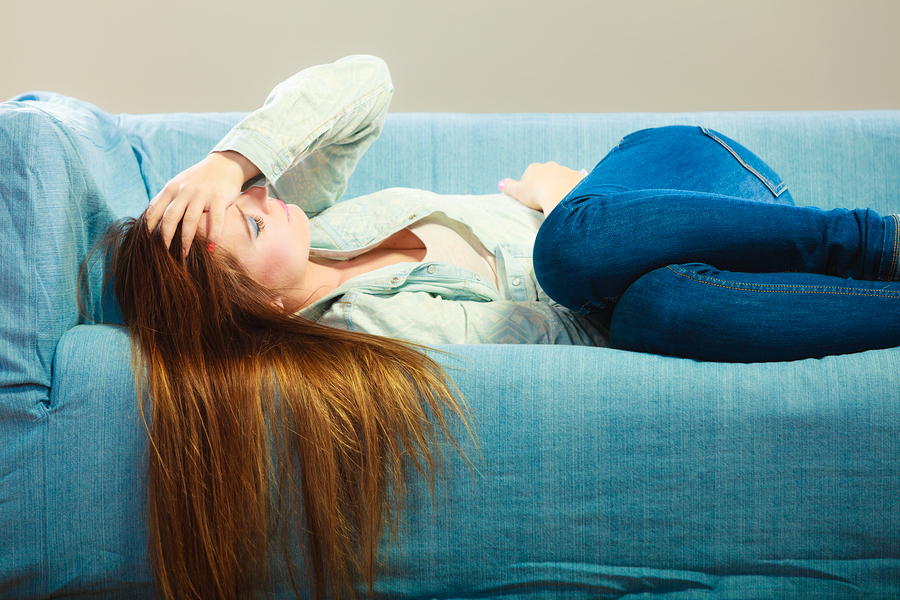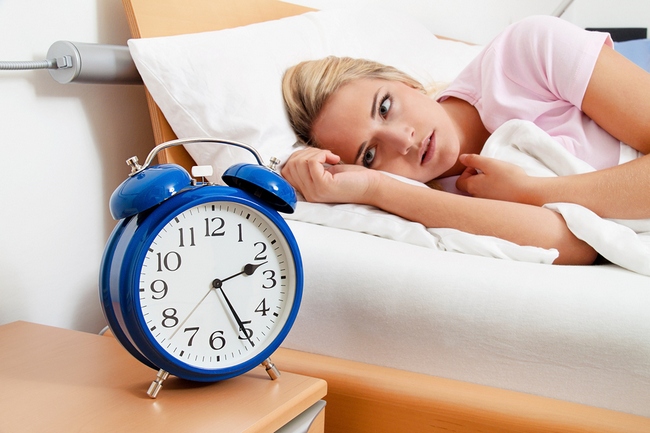- Make It Yourself Lavender Heart-Shaped Bath Bombs!
- 20 Things You Never Knew About “Down There”
- 12 Best Foods For Those Suffering From Arthritis Pain
- 12 Personal Hygiene Mistakes Almost Everyone Makes (Mom Never Told You About #4!)
- 15 Medicinal Plants And Herbs From The Cherokee People
- 12 Mind-Blowing Benefits Of Drinking Coconut Water During Pregnancy
- 12 Outstanding Winter Foods That Won’t Fatten You Up Like A Christmas Turkey
The Relationship Between Anxiety And Sleeping Problems Is Deeper Than You Think

Photo credit: bigstock.com
We all know how important it is to get a decent night’s sleep. Trying to get work done or concentrate on a given task is significantly more difficult when we aren’t properly rested. But few people are aware of the relationship between lack of sleep and more serious problems like anxiety disorders. New research has shown there to be a synergistic effect between insomnia and anxiety. In this article, we will explore this in detail, and discuss practical steps you can take to stop sleep or anxiety from degrading your quality of life.
A Vicious and Self-Reinforcing Cycle
There is significant evidence that the relationship between problems with anxiety and difficulty sleeping isn’t a one-way street. Each of them can influence and exacerbate the other.
When people don’t get enough sleep, they tend to become moodier, crankier, and more irritable. Things that might not stress them out so much under normal circumstances will create more stress and anxiety in an overly tired person. But of course, walking around all day in a tense, anxious state will make it more difficult to fall asleep.
Each problem reinforces the other, creating a negative downward cycle. It does raise sort of a “chicken or egg” question over what comes first. Do sleeping problems create anxiety? Or does anxiety lead to insomnia?
The truth is that it probably varies from individual to individual. Insomnia is certainly a more common problem than anxiety disorders, so perhaps the scale might be tilted in that direction.
These two problems are also linked to an increased risk of depression. Anxiety, depression, and sleeping problems can occur all in the same person, so it can be very difficult to determine what came first, or what’s driving the other symptoms to manifest themselves. There’s some evidence that difficulty sleeping during adolescence is associated with an increased risk of depression in teens, but the evidence for this link isn’t as strong in adults.
As you can see, the nebulous relationship between these problems can make it difficult to know how to address them. The best approach for most people is probably a comprehensive strategy for reducing anxiety and stress in your life as much as possible, and taking practical steps to prevent sleeping problems.
Legitimate anxiety and depressive disorders and that impair a person’s ability to function should always be treated by a qualified professional. But if you’re experiencing a general sense of stress and anxiety that’s simply hindering your quality of life and making it more difficult to fall asleep, there are some things you can do on your own to reduce their effects. Likewise, you can take steps on your own to try to alleviate any problems with sleep you might be having.
Continue to Page 2

Photo credit: bigstock.com
Steps to Improve Your Sleep and Reduce Anxiety
- Establish a routine for your sleep. Try setting your alarm to wake you up at the same time every day. Likewise, go to bed at the same time every night. Over time, your body will understand when it’s time to sleep, and when it’s time to be awake and alert.
- Reduce your intake of caffeine. Caffeine is technically a stimulant drug, and it’s one that far too many people abuse. It also has a half-life of around 15 hours, so it can continue to affect some people even long after they’ve finished a cup of coffee. Everyone’s tolerance for caffeine is different, and it’s important to understand your own.
- Reduce your use of electronic screens before bed. Devices like smartphones and tablets emit a type of light that can confuse your brain’s natural ability to distinguish between daylight and nighttime hours. Try to cut off use of electronic screens about one hour before going to sleep.
- Try yoga and meditation. This might sound like hokey, cliché advice to some people who have never tried it. But the fact is that meditation and yoga are proven systems for reducing stress and anxiety that have stood the test of time. Try it out and see what it can do for you.
- Talk to others. Connect with people you trust and who care about you and discuss problems you might be having in your life. Bottling problems up can produce anxiety and tension in your life, and trigger a lot of the problems discussed in this article.
- Objectify your problems. Write them down. The simple act of clearly naming the things that are causing stress in your life will help give you clarity on what you need to do to fix them.
READ ALSO: Yoga For Bedtime: Take 20 Minutes To Transition For A Good Night’s Sleep Video
Try these approaches out and see if they don’t make a positive difference in your quality of life during both sleeping and waking hours.
References:
































